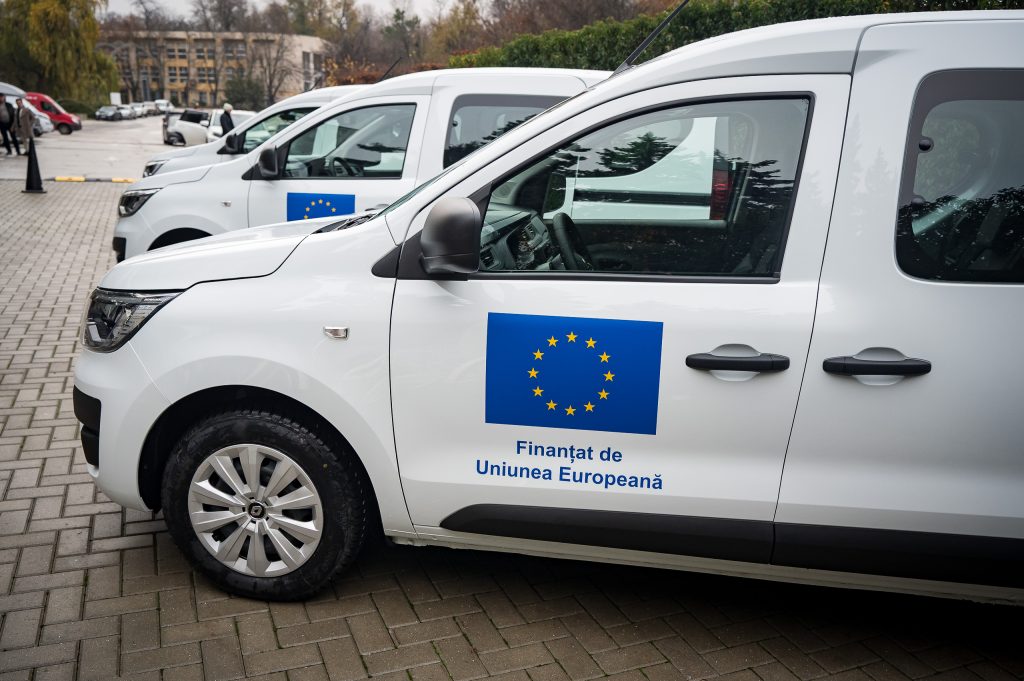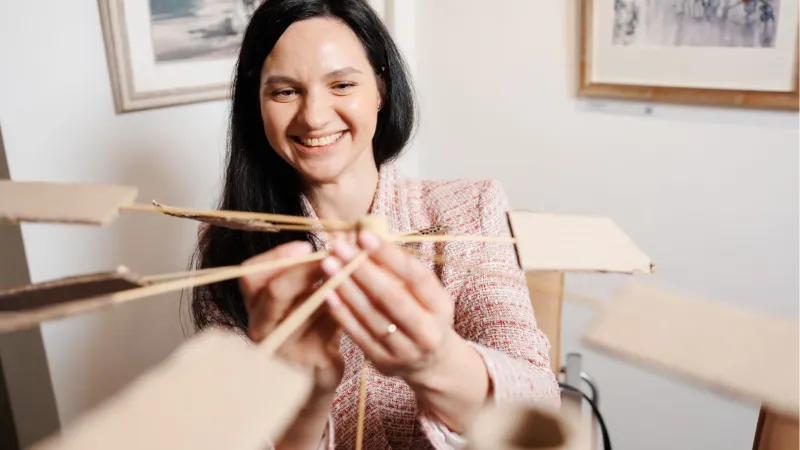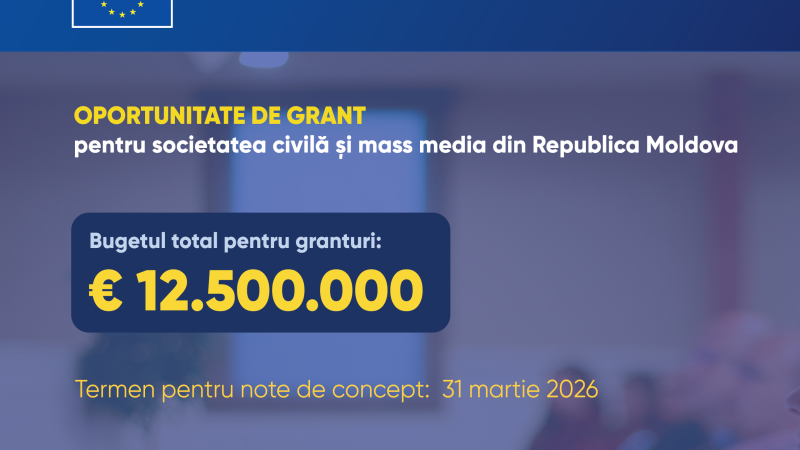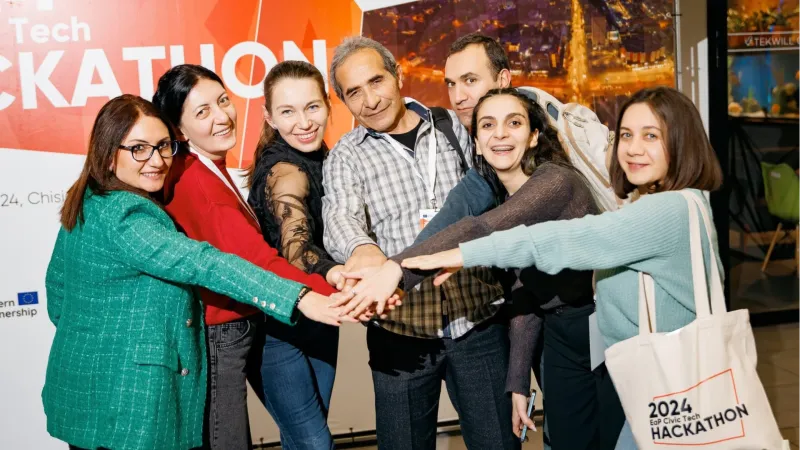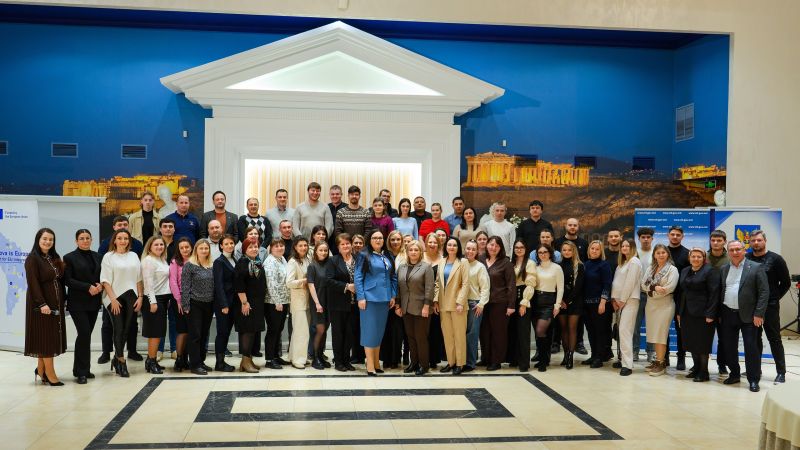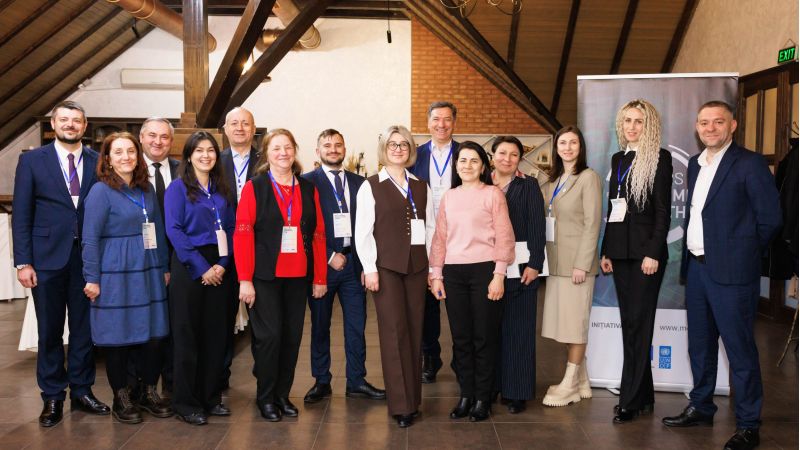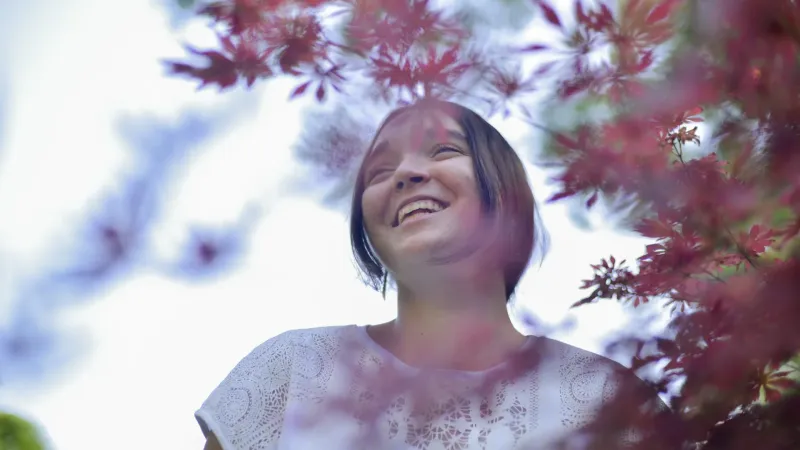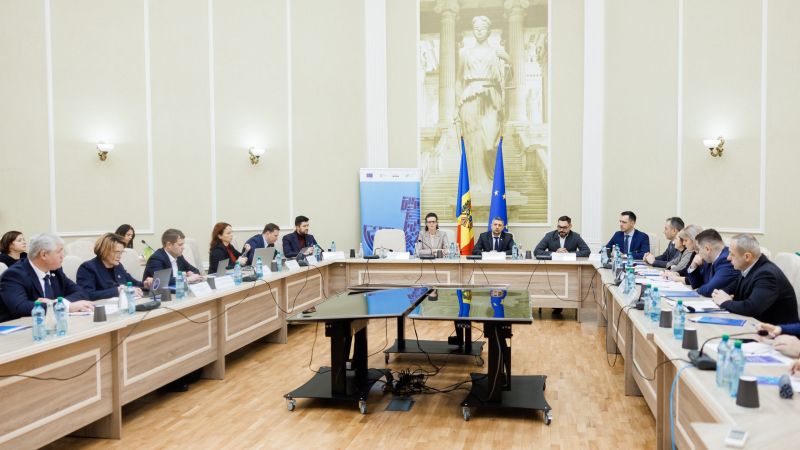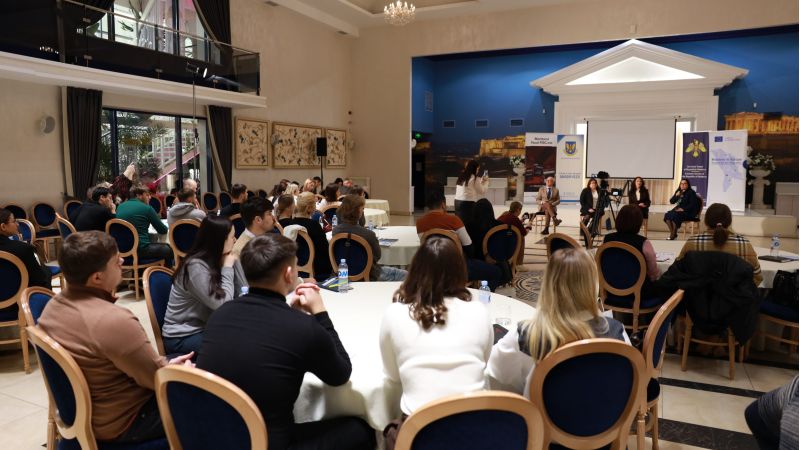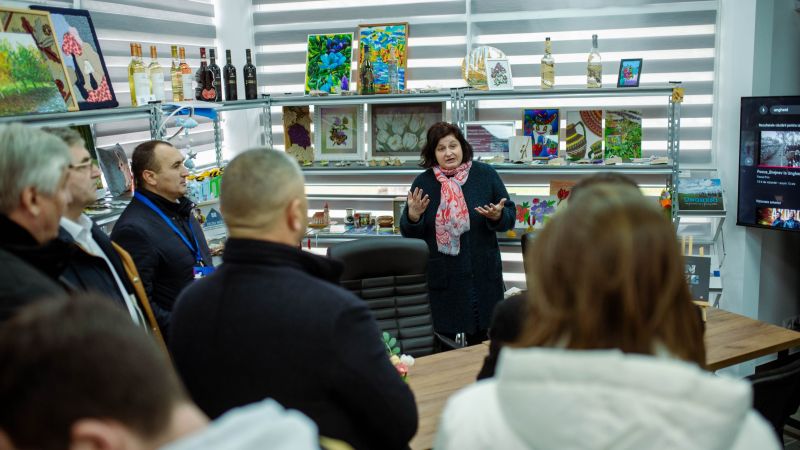
Results of the project “Promoting CSOs as Partners in Developing Social Services”
Chisinau hosted the closing event of the project “Promoting Civil Society Organisations as Partners in Developing Resilient Social Services”, funded by the European Union and implemented by a consortium consisting of Keystone Moldova, Dorcas Foundation – Moldova, and the “Neoumanist” Education Association.
With a budget of approximately €1 million, the project supported civil society organisations and local public authorities in creating and developing 16 social laundries that now provide free services to over 1,500 vulnerable people in 16 communities across the Republic of Moldova.
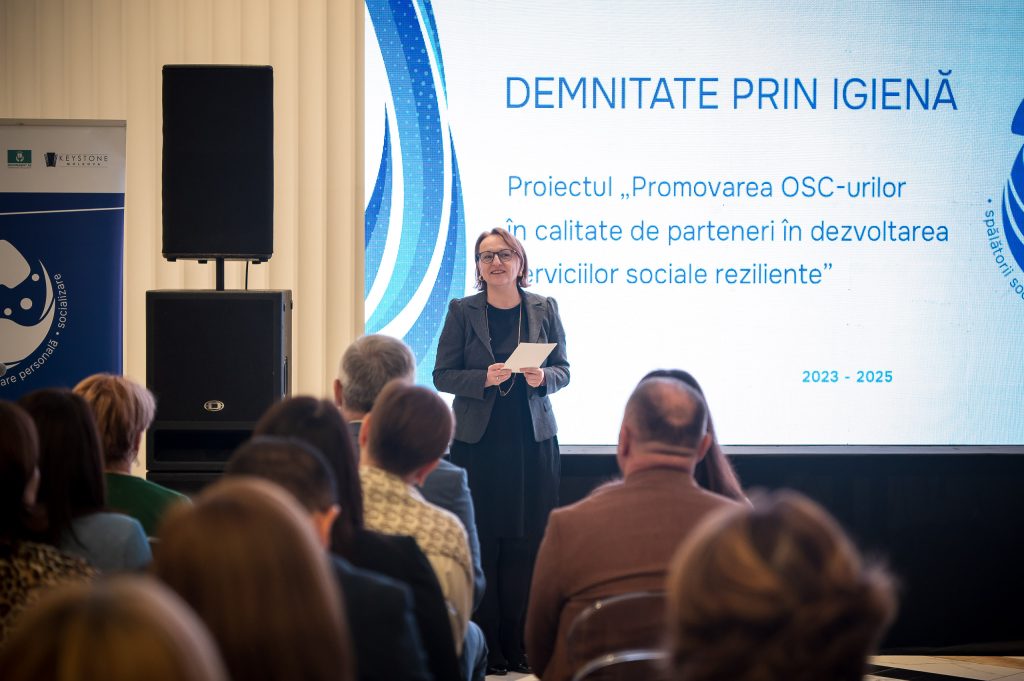
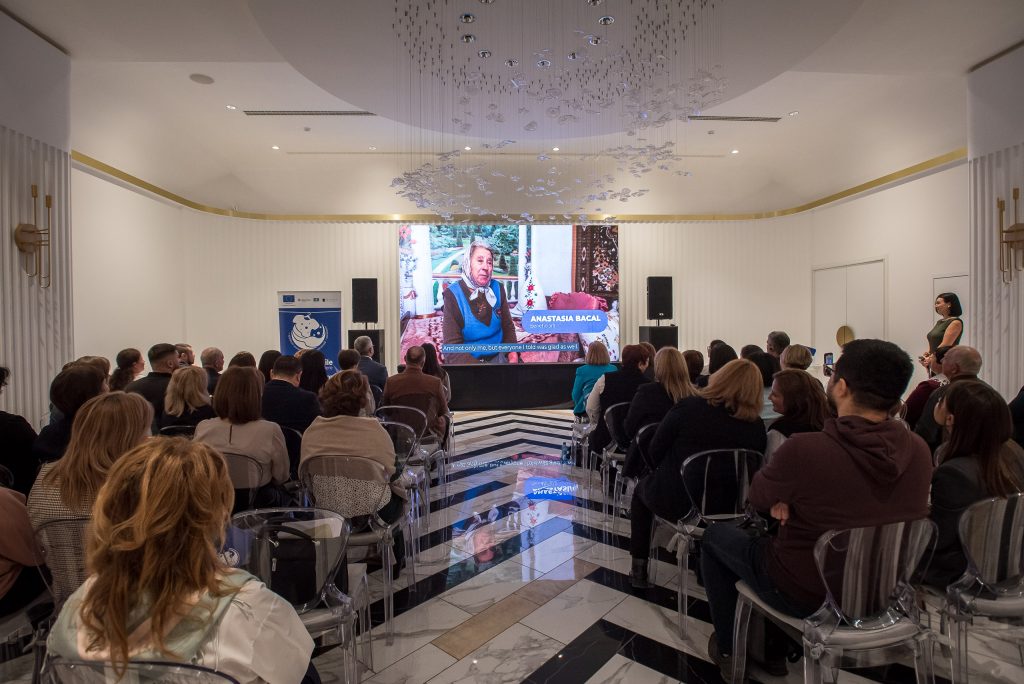
A central component of the project is the partnership between civil society organisations (CSOs) and local public authorities (LPAs). City halls provided financial contributions and allocated premises – unused or abandoned spaces. Through the project, these facilities were fully renovated, equipped with the necessary machinery, and transformed into modern, safe and accessible community services for vulnerable residents.
To improve access to services in rural communities, the project provided:
- 3 vehicles to local authorities in communities where one laundry serves multiple villages
- 12 tricycles to enable social workers to pick up laundry directly from people who are homebound or unable to travel
As a result, services have become mobile and accessible, including for people with disabilities, older adults and those living in geographically isolated areas.
What do the social laundries offer?
The developed services go far beyond basic laundry and include three essential components of social inclusion:
1. Washing and sanitising
All 16 services were equipped with high-capacity washing and drying machines, detergents, consumables and professional equipment. Beneficiaries’ laundry is collected, washed, dried and returned free of charge, helping vulnerable households save significant resources.
2. Bathing facilities – access to personal hygiene
In many Moldovan villages, people do not have access to a shower with hot water. The social laundries provide modern shower rooms with boilers, where individuals without financial means can maintain personal hygiene safely and with dignity.
3. Social rooms – spaces for community connection
Some laundries include social rooms where children, parents and grandparents can meet, learn and spend time together. Activities range from educational workshops and counselling sessions to thematic discussions and games. This turns the laundry into a community space where people regain confidence and a sense of belonging.
Sustainability after project completion
After the project’s conclusion, all 16 social laundries were transferred to local authorities, who will ensure their continued operation and expand the number of beneficiaries. This is one of the project’s most important achievements – turning an internationally funded initiative into a sustainable and locally integrated social service.
“The European Union remains a reliable partner for communities in the Republic of Moldova, especially when it comes to social inclusion and supporting the most vulnerable. This project shows that simple solutions, when well organised and supported by authorities and communities, can have a major impact on people’s lives. Social laundries turn hygiene from a luxury into a right and create spaces of dignity, solidarity and hope for those who need them most,” said Iwona Piórko, EU Ambassador to the Republic of Moldova.
Natalia Plugaru, Minister of Labour and Social Protection, stated: “I am pleased to see that this project responds to real community needs and complements the Government’s efforts to strengthen the national system of social services. The state has the duty to ensure accessible and sustainable services, and partnership with the European Union and civil society is essential to achieving this goal.”
Ludmila Malcoci, Executive Director of Keystone Moldova, added: “This project has shown that when civil society organisations, local authorities and international partners work together, real change is possible. For many vulnerable people, these services mean restored dignity, financial relief and a space where they feel seen and supported. The fact that the laundries are now fully transferred to local authorities ensures long-term sustainability,” she said.
